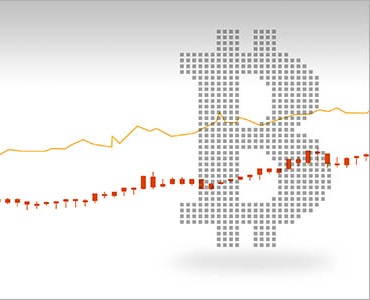The FASB is conducting early stage research about developing an accounting standard for digital currency and the technology that underpins it. With the use of digital currency increasing, proponents say inconsistent accounting practices are becoming a problem.
As the digital currency Bitcoin becomes more of a household name, the FASB is considering whether it needs to develop accounting guidance for digital currencies.
The standard-setter for U.S. GAAP plans to discuss whether to add a project to its agenda at a public meeting, a FASB spokesperson said. The timing of the meeting has not been set.
The accounting board’s examination of digital currency follows a request from the Digital Chamber of Commerce, a trade group representing the blockchain industry, to clear up accounting questions that have cropped up in the growing digital currency market. The organization in a June 8, 2017, letter called on the FASB to create guidance to address when to recognize digital currency and how to measure it.
“It is what we consider a missison-critical issue,” said Perianne Boring, founder and CEO of the group.
Bitcoin is the biggest name in the digital currency business, but there are other, growing competitors in the market such as Ethererum and Ripple. The technology underpinning digital curency, blockchain, is a secure, distributed database for maintaining a record of transactions.
Proponents of digital currency and blockchain technology view it as a potential business game changer, likening its rise to the development of the internet. Use and acceptance of digital currencies as a method of payment is far from universal, however, and it is banned in some countries. In May, hackers demanded victims of the WannaCry cyber attack to pay ransom with Bitcoin to unlock their computer data, raising questions about criminals using digital currency.
Still, backers say there is an increasing volume of digital currency transactions and point to major companies such as Microsoft Corp., Dell Inc., and Overstock.com accepting digital currency as payment. In addition to being used as a form of payment, digital currency also is held as an asset by businesses, which can sell the currency when its value goes up. The increased presence in the market indicates the need for consistent accounting guidance, the Digital Chamber of Commerce said.
“As there is a lack of clear guidance for these digital currencies, there is currently a diversity of views on the accounting,” the group wrote to the FASB.
Some financial professionals believe digital currency should be accounted for under Topic 305, Cash and Cash Equivalents; others say Topic 825, Financial Instruments , applies to electronic money; while others consider Topic 350, Intangible Assets , or, Topic 330, Inventory, the more appropriate accounting guidance.
The conflicting views — and lack of authoritative accounting guidance — leads to auditing questions, which can turn off investors, and, in turn, research and development. It also can hamper start-ups from going public, Boring said.
“If you can’t get an audit, you can’t go public, so it’s a major hurdle,” she said.
The organization in its letter said it believed that the FASB should develop an accounting model that would allow businesses to recognize the digital currency when they control the associated economic benefits and measure the currency at fair value with changes recorded in income.
This is similar to a position the Australian Accounting Standards Board took in December 2016 when it presented a paper to the IASB’s main advisory panel, the Accounting Standards Advisory Forum (ASAF), suggesting the international board investigate consistent accounting for digital currency.
The paper’s author, Henri Venter, director in Deloitte Australia’s National Accounting Technical Team, said the lack of clear guidance in international accounting standards meant digital currencies were accounted for either under IAS 2, Inventory , or IAS 38, Intangible Assets, but the measurement guidance in neither standard provides sufficient information to analysts and investors about the value of the electronic money. Venter recommended that the IASB develop an accounting standard requiring the measurement of digital currency at fair value, with changes recognized in net income. The international board has not acted on the request, but IASB Chairman Hans Hoogervorst said at the end of the meeting that the board would keep it “on the watch list.”
Members of the ASAF, including the FASB’s Harold Schroeder, also expressed apprehension about the IASB taking on an accounting project for an industry that is still in its infancy.
“I think we’re way ahead of the game here. I think there are too many things that have to happen,” Schroeder said.
The FASB is separately considering whether it should take on the broader issue of accounting for intangible assets, and could address digital currency within its work for that guidance. The FASB at its May 11 weekly meeting directed its research staff to assess the merits of overhauling the accounting for intangible assets versus focusing on areas of confusion that could be cleared up quickly.
Accounting for intangible assets has been a contentious issue for most of the FASB’s history, with questions arising over the years about when intangible assets should be recognized on company balance sheets and how to recognize and measure them.


